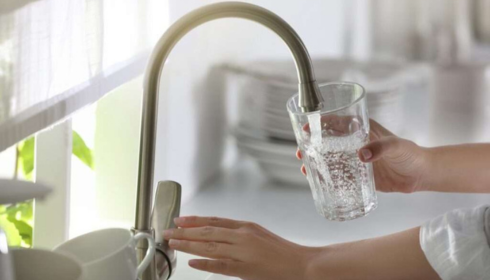We don’t often stop to think about water until something seems wrong. Most days, it flows clear, tasteless, and dependable. But if you’ve ever turned on a tap and been greeted by a sharp odor that makes you wrinkle your nose, you know the unsettling reality of sulfur in your water. It’s that distinct smell—like rotten eggs—that transforms a simple glass of water into something you’d rather pour straight down the drain. Beyond the inconvenience, it sparks questions: is this safe? What’s causing it? And most importantly, how do you fix it?
The Science Behind the Smell
The culprit is usually hydrogen sulfide gas, which can form naturally in groundwater as organic matter breaks down. It doesn’t take much for the odor to be noticeable. Even tiny amounts can fill your kitchen or bathroom with a stench that lingers. The good news is that while the smell is unpleasant, it’s not always dangerous at low concentrations. The bad news? It can corrode plumbing, stain fixtures, and ruin the taste of food and drinks. So while you may not be in immediate danger, it’s not something you want to ignore.
Local Realities: When It’s Close to Home
Every region faces its own set of water quirks. In places like Saskatchewan, sulfur is a recurring issue for both private wells and some rural water supplies. Homeowners often report that their water smells like sulfur Saskatchewan, especially after heavy rains or seasonal shifts. It’s not just inconvenient—it can affect daily routines, from cooking to showering, and create constant frustration. If you’ve ever delayed inviting guests over because of “that smell,” you know how disruptive it can become.
Why Filters Make a Difference
Once you’ve identified sulfur as the issue, the next step is finding a solution that actually works. Temporary fixes—like boiling water or using chlorine tablets—might mask the problem, but they don’t get to the root. That’s where investing in the best sulfur water filter makes sense. These systems are designed to target hydrogen sulfide directly, neutralizing it before it ever reaches your tap. Instead of treating symptoms, you’re solving the cause. The result is water that tastes, smells, and feels as it should: clean and refreshing.
Daily Life Without the Smell
Imagine stepping into a shower without the faint odor of eggs rising with the steam. Or cooking pasta without worrying the smell will linger in the kitchen. These are the everyday differences that proper filtration makes possible. It’s easy to underestimate until you’ve experienced both sides. Sulfur water doesn’t just affect taste—it changes how comfortable you feel in your own home. Removing it is less about luxury and more about restoring normalcy to daily routines.
Understanding the Options
Not all filtration systems are equal. Some use aeration, adding oxygen to the water to neutralize hydrogen sulfide. Others rely on activated carbon or oxidation filters, each with their strengths depending on the severity of the problem. The right system depends on your water test results and the size of your household. It can feel overwhelming at first—technical terms, installation choices, and price points—but once you break it down, the goal is simple: choose a system that consistently delivers clean, odor-free water.
The Hidden Costs of Doing Nothing
It might be tempting to shrug it off, especially if the smell comes and goes. But untreated sulfur water has consequences beyond the annoyance. It can corrode pipes, leading to costly plumbing repairs. It can stain sinks, bathtubs, and even laundry. Over time, it makes appliances like dishwashers and water heaters less efficient. And there’s the emotional toll: that constant background worry about whether your water is truly safe to drink. In the long run, the price of ignoring the problem often outweighs the investment in a proper solution.
Simple Fixes People Try
Before jumping to full systems, many homeowners experiment with smaller fixes. Pouring bleach into a well, for instance, is a common DIY attempt. Sometimes it works for a while, but it’s rarely a lasting solution and can bring its own set of issues. Others rely on bottled water for drinking and cooking, which is both costly and wasteful. These temporary approaches highlight the same truth: without addressing the root cause, the problem always comes back. And nothing is more frustrating than thinking you’ve solved it, only to smell sulfur creeping in again.
A Reliable Long-Term Approach
That’s why professional solutions are so appealing. The right system is more than equipment—it’s peace of mind. Knowing that every glass, every shower, and every load of laundry is free of that nagging odor changes how you feel at home. Professionals can test your water, explain your options, and set up systems that are tailored to your household. It’s not just about cleaner water; it’s about restoring confidence in something as basic as turning on a tap.
Fixing the Rotten Egg Smell
At the end of the day, what most people want is straightforward: a rotten egg smell in water fix that actually works. Not a temporary bandage, not an endless cycle of trial and error, but a permanent solution. The good news is, those fixes exist. Whether through advanced filtration, aeration systems, or chemical treatment designed for long-term results, today’s technology has caught up with the problem. Families no longer have to live with the frustration—or embarrassment—of sulfur water.
Closing Thoughts: Water You Can Trust
Clean water isn’t glamorous. It doesn’t come with bragging rights or show up in Instagram photos. But it’s foundational. When something feels “off” about your water, it seeps into every part of daily life. Sulfur odors might seem small in the grand scheme of things, but they erode comfort, confidence, and even the value of your home. Fixing the problem isn’t just about removing a smell—it’s about restoring trust in something essential. And when you finally take that first sip of fresh, odor-free water, you realize just how much you were putting up with before.



